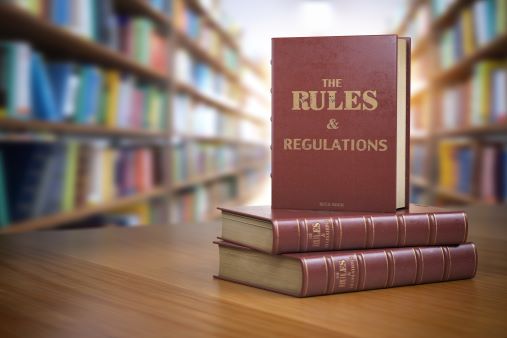The Supreme Court heard oral argument Monday in Lucia v. SEC. And while it was not the “cage match” that some hoped for, it did raise important questions. Both the parties’ arguments and the Justices’ questions indicated that the Court has several conflicting issues to resolve in deciding whether SEC ALJs are hired in violation of the Appointments Clause. One of the tensions which got the most attention seemed to be whether SEC ALJs should be “politically accountable” to the President since they are essentially part of the executive branch or whether they should maintain a greater degree of “independence” because they function as adjudicators, akin to Article III judges. The Justices also spent substantial time trying to discern how their decision in Lucia might impact ALJs in other federal agencies.
As prior posts have noted, [4/6/18, 1/23/18, 1/16/18], this case is untraditional because the Solicitor General refused to defend the SEC’s position that prevailed in the D.C. Circuit. Instead, both Lucia (the respondent in the initial ALJ proceedings) and the SEC/DOJ argue that hiring SEC ALJs via the government’s civil service process violates the Appointments Clause because ALJs should be deemed “inferior officers.” Under Supreme Court precedent, an “inferior officer” is one whose position is “established by law,” whose duties, salary and means of appointment are specified by statute, and who potentially “exercise[s] significant discretion in carrying out important functions.” Both the Solicitor General and Lucia contend that SEC ALJs meet all these criteria when overseeing formal adjudications. However, Lucia and the Solicitor General differ over whether the process of removing SEC ALJs is also problematic (because it requires good cause and cannot be done at the pleasure of the President) and over what remedy Lucia might have.
The task of defending the D.C. Circuit’s decision (and the SEC’s prior position) was left to court-appointed amicus curiae, Anton Metlitsky. Metlitsky argued in his brief that SEC ALJs do not exercise significant discretion when adjudicating disputes because they do not make final decisions. Instead, they only make preliminary decisions that can be reviewed by the full Commission.
The parties’ divisions persisted at oral argument, and the Justices seemed genuinely undecided as to how to resolve the issues before them. Some Justices focused on the need for accountability to the executive branch inherent in the Appointments Clause. Chief Justice Roberts worried that the current hiring scheme could frustrate the President and the SEC’s accountability for unpopular decisions by SEC ALJs because they could try to distance themselves from those decisions by saying that they didn’t actually hire the ALJs. The Chief Justice expressed concern that the current process “operates as insulation from the political accountability that the drafters of the Constitution intended.” Lucia’s counsel echoed that concern. Justice Breyer took the opposing view, suggesting that increased accountability to the executive branch could mean “good-bye to the merit civil service at the higher levels.”
Metlisky downplayed the likelihood that the Commission or the President could disavow ALJ decisions, arguing that the full Commission was “100 percent accountable” for any ALJ decision because the Commission had the statutory power to delegate to ALJs in the first instance, could review the ALJ’s resulting decision, had to affirmatively approve it before it became final, and by statute, the decision “is always the decision of the Commission.”
Meanwhile, other Justices emphasized different concerns. Justice Kagan suggested that greater accountability was a negative and that instead the ALJs’ “decisional independence” was important to maintain. According to her, “this is a situation where we have adjudications where we typically think we want the decision maker to be insulated from political pressures. So wouldn’t putting those decision makers even closer to the political body only exacerbate the problem?” She also noted that there were multiple ways to interfere with decisional independence, from reducing the decision maker’s pay to having the ability to remove as a constant threat, to deciding who gets a job or not. And Justice Breyer again worried that finding that ALJs had to be appointed could mean “goodbye to independence of ALJs.”
But Lucia’s counsel argued that the ability to preside over formal adjudications independently was precisely what made an ALJ an “inferior officer.” He argued that ALJs exercise “sovereign powers” when they do so and that “sovereign powers” can only be exercised by an officer subject to the Appointments Clause. He pointed to the fact (disputed by Commissioner Jackson as discussed previously, that 90 percent of ALJ initial determinations become final without additional review as evidence that SEC ALJs conduct formal adjudications on behalf of the Commission with finality. He also asserted that ALJs could maintain their decisional independence even if they lack structural independence because they were subject to the Appointments Clause.
For his part, the Solicitor General argued that whether an ALJ is an inferior officer turns on whether the ALJ (or other official) can bind the government or third-parties on important matters or can undertake other important sovereign functions. The government contended that SEC ALJs can do both and therefore are inferior officers. Metlitsky argued repeatedly that ALJs had no power to bind since their decisions were subject to Commission review.
Several Justices tried to gauge what impact their decision would have on other agencies’ ALJs or other federal employees who exercise discretion. Justice Kennedy asked how many ALJs could be affected. Lucia’s counsel asserted that, by his count, it only impacted about 150 ALJs who decided adversarial proceedings (and expressly did not include Social Security ALJs). Justice Sotomayor wondered how this applied beyond the adjudicative ALJ setting because the Founding Fathers called some people employees and others not employees even though they performed somewhat similar functions. Justice Alito asked whether FBI agents were officers or employees. The Solicitor General indicated that FBI agents would not be officers because their discretion is constrained and vested in their superiors. Finally, Justice Breyer expressed reservations about how to decide Lucia because he had no idea what the nature of jobs was throughout the civil service and whether this decision would impact them.
The Solicitor General also pressed the removal question again, but the Justices did not seem interested in addressing that issue (perhaps because it was not raised by the parties before).
Most of the post-argument commentary has speculated that a majority of the Court will decide that the SEC’s ALJs are inferior officers. However, given the reticence of some of the Justices, if the Court reaches that conclusion, it may well attempt to limit the scope of its decision. An opinion should be issued by the end of June. Stay tuned.













